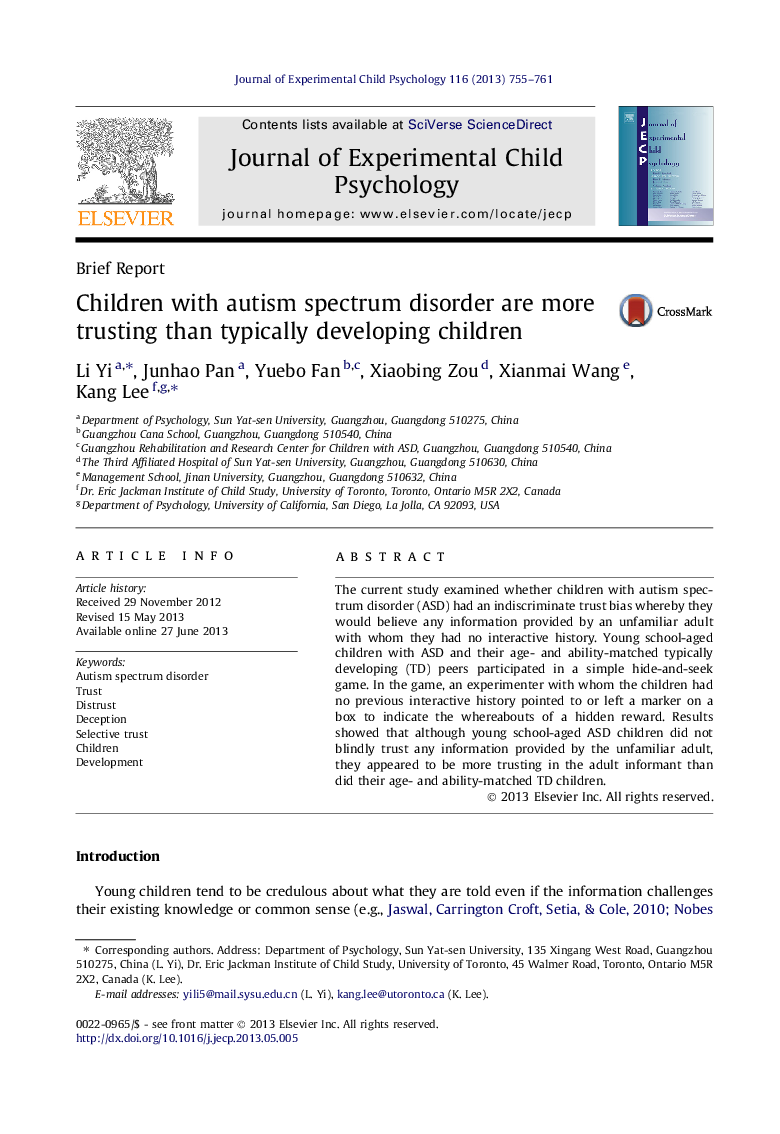| Article ID | Journal | Published Year | Pages | File Type |
|---|---|---|---|---|
| 10453069 | Journal of Experimental Child Psychology | 2013 | 7 Pages |
Abstract
The current study examined whether children with autism spectrum disorder (ASD) had an indiscriminate trust bias whereby they would believe any information provided by an unfamiliar adult with whom they had no interactive history. Young school-aged children with ASD and their age- and ability-matched typically developing (TD) peers participated in a simple hide-and-seek game. In the game, an experimenter with whom the children had no previous interactive history pointed to or left a marker on a box to indicate the whereabouts of a hidden reward. Results showed that although young school-aged ASD children did not blindly trust any information provided by the unfamiliar adult, they appeared to be more trusting in the adult informant than did their age- and ability-matched TD children.
Related Topics
Social Sciences and Humanities
Psychology
Developmental and Educational Psychology
Authors
Li Yi, Junhao Pan, Yuebo Fan, Xiaobing Zou, Xianmai Wang, Kang Lee,
